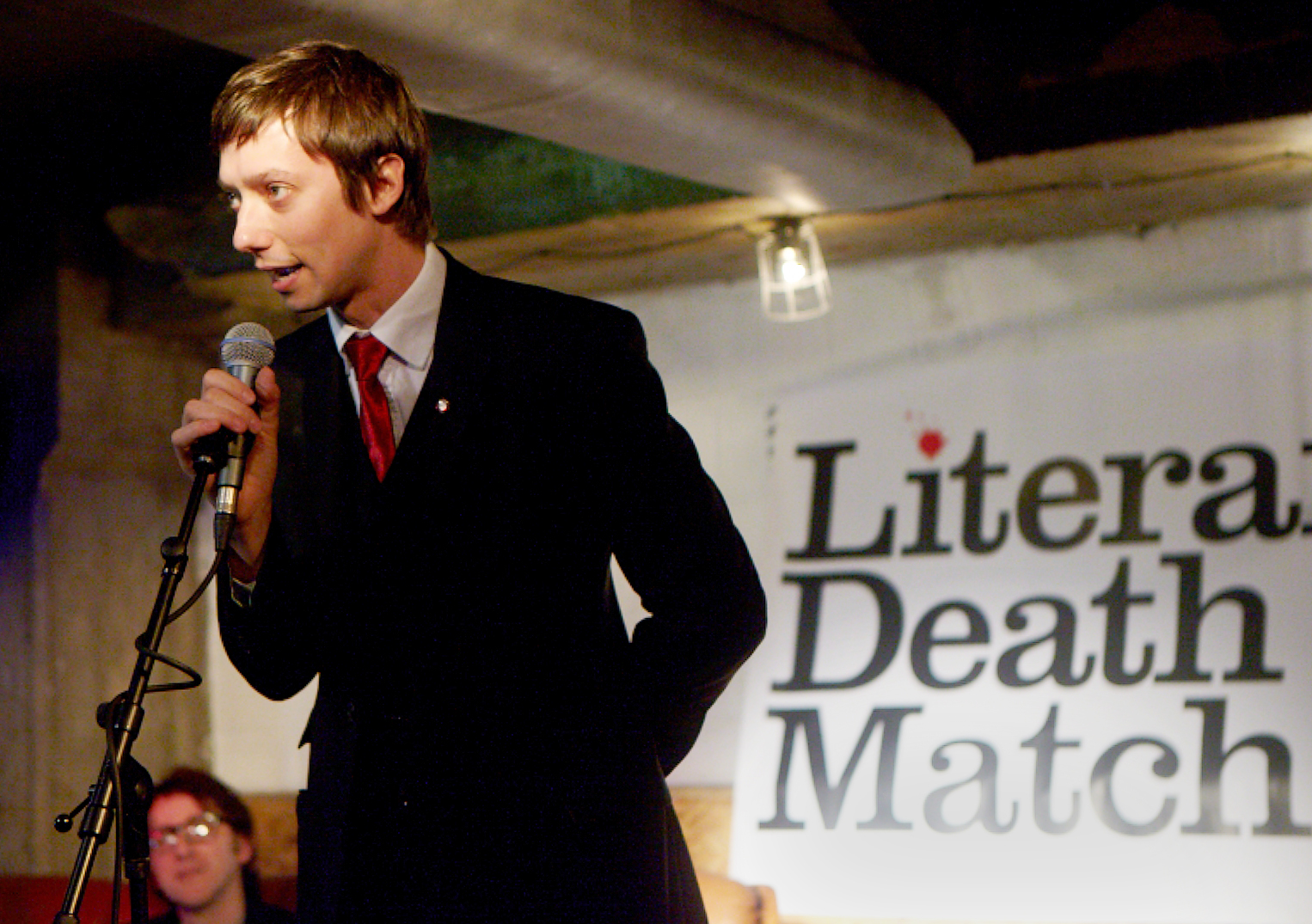There’s something about a spectacle sport that requires the finesse of spoken word and the ability to maneuver a mustache to a poster of Ernest Hemingway’s head that has audiences stirring around the world.
The event is a Literary Death Match and the format is simple: four readers present their written pieces to the audience and three judges, and the judges choose two finalists. These finalists take part in a game-show style literary competition that requires physical and mental prowess, competing against each other until a winner is crowned.
The finale is notorious for its strange and bizarre challenges, past challenges having ranged from pinning a mustache on a poster of Ernest Hemingway’s face while blindfolded, to guessing an author’s last name in a jumble of letters.
This Wednesday, the Hammer Museum will be hosting a Literary Death Match with a line-up of writers that include “Sideways” author and playwright Rex Pickett, performer and writer of “Fiction Ruined My Family” Jeanne Darst, author of “Girlchild” Tupelo Hassman and poet Javon Johnson. Judges for this event include writer and musician Henry Rollins and comedians Rob Delaney and Tig Notaro.
Co-creator and host Todd Zuniga said he originally started Literary Death Match on a whim in 2006, disenchanted by the sameness and tedium in the reading format he witnessed when he lived in New York. Brainstorming with fellow creators Elizabeth Koch and Dennis DiClaudio, the final product was a reading event that combined the entertainment of competition and comedy with the medium of reading and spoken word.
“The big thing that was interesting when we first started doing it was that the format held. … We just winged it,” Zuniga said.
Since then, Literary Death Match has traveled to 43 cities worldwide, such as Berlin, London and San Francisco. Zuniga said he enjoys bringing the event back to Los Angeles, which he said is one of the most popular cities.
“In L.A., the goal is to find community, and it’s really interesting to try to see the show because you’re suddenly in a room full of smart, interesting people,” Zuniga said.
Hassman, who also teaches at Santa Monica College, said that events such as Literary Death Match are crucial to providing a level of interest in reading for this current generation.
“I wouldn’t say that literature is dying, but there’s so much to compete with and to make the world of literature relevant to new worlds and easier to swallow is always a good thing. And it sounds like fun,” Hassman said.
Zuniga said the audience gets to help out in the competitions during the finale, with challenges that range from guiding blindfolded finalists as they shoot silly string on a poster of author Jonathan Safran Foer to becoming artists for an intense match of literary Pictionary.
“What I love doing is picking people out of the crowd to be part of the finale. There’s an everyman weirdness about the show, and I love spectacle,” Zuniga said.
Delaney, known for his comedic Twitter quips and articles for Vice Magazine, said that there’s something about the format of Literary Death Match that removes the pretentious nature surrounding literature.
“Art in contest form is always silly, and so to take the most ego-heavy art medium, which is literature in my opinion, and (place) those people against each other, you get big intellects, big egos, with the pressure-release valve of comedy,” Delaney said.
Zuniga said that Literary Death Match should especially be an attraction for young college students looking for some literary camaraderie for the night.
“It’s (a) fun show that happens to be really smart. I say that people leave the house for two reasons,” Zuniga said. “They leave the house to be surprised or to make out with someone. And we’ve managed to pull off a literary event that does both. So hopefully you’ll meet the future love of your life, and they will be intelligent.”
